Overview
The article delineates eight essential strategies for effective data sourcing in sales. It underscores the necessity of:
- Clear objectives
- Diverse data sources
- Technology tools to elevate lead generation
These strategies are bolstered by compelling evidence that illustrates improved outcomes, including heightened lead conversion rates and enhanced decision-making through precise and reliable data management practices.
Introduction
In an era where data dictates decision-making, sourcing high-quality information is essential for achieving sales success. Effective data sourcing not only amplifies outreach but also significantly elevates conversion rates, establishing it as a vital element of any sales strategy. Yet, with the multitude of tools and methodologies at their disposal, how can sales teams ensure they are employing the right strategies to optimize their efforts? This article explores eight fundamental strategies that can revolutionize data sourcing practices, providing professionals with the insights necessary to navigate the complexities of today's competitive landscape.
Websets: AI-Powered Lead Generation for Targeted Data Sourcing
Websets harnesses advanced AI algorithms to revolutionize lead generation and information gathering, enabling businesses to adeptly navigate vast datasets and pinpoint the right professionals or organizations. This capability is crucial for marketing teams striving to elevate outreach and amplify conversion rates. With features such as enhanced search results that provide LinkedIn profiles, detailed company insights, and historical job experiences, Websets distinguishes itself as a formidable tool for in commerce.
In 2025, businesses that adopted AI lead scoring reported a remarkable 28% increase in qualified leads directed to their sales teams, underscoring AI's transformative impact on conversion rates. Furthermore, an impressive 98% of revenue teams assert that AI enhances lead prioritization, allowing them to focus on high-value opportunities. By integrating these sophisticated functionalities, Websets empowers professionals to operate more efficiently—not merely with increased effort—ultimately yielding superior outcomes in their lead generation endeavors.
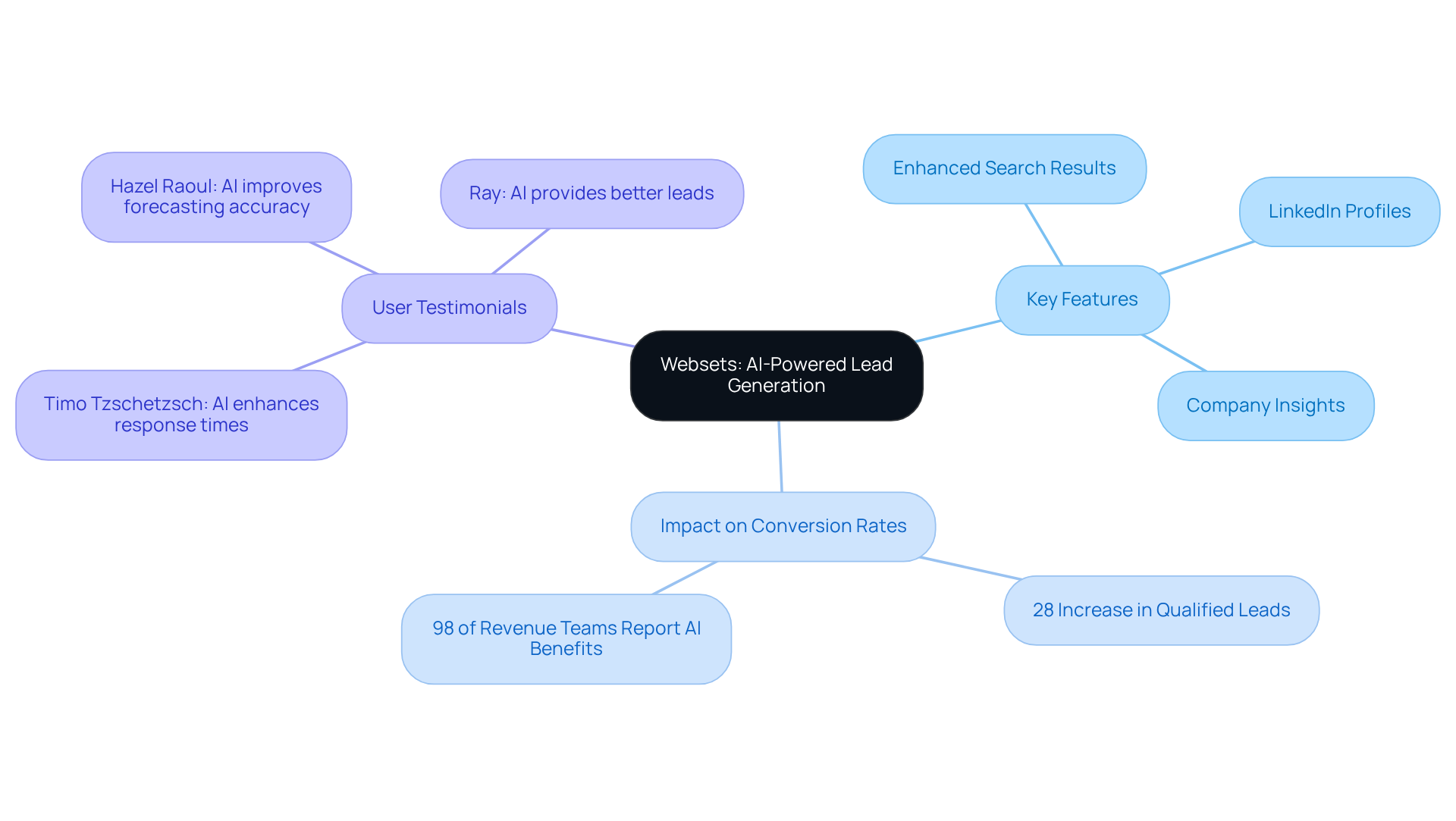
Define Your Data Requirements: Establish Clear Objectives for Sourcing
Establishing clear goals for information gathering is vital for a successful sales strategy. Sales teams must define specific objectives, such as identifying the desired lead types or the critical information to collect. This clarity streamlines the data sourcing process and ensures that the information obtained is both relevant and actionable.
For example, leveraging Exa's advanced search capabilities allows teams to efficiently engage in data sourcing for leads from targeted industries or geographic regions that align with their market strategy. By setting these parameters and utilizing Exa's API integration for seamless information management, teams can sharpen their focus and enhance the quality of their outreach efforts, ultimately leading to improved business outcomes.
As Ziera Soda aptly points out, 'It’s no longer about using your gut feelings to make decisions. Now, it’s about using information analytics to make smart choices.' This perspective underscores the necessity of in navigating the complexities of today's commercial landscape.
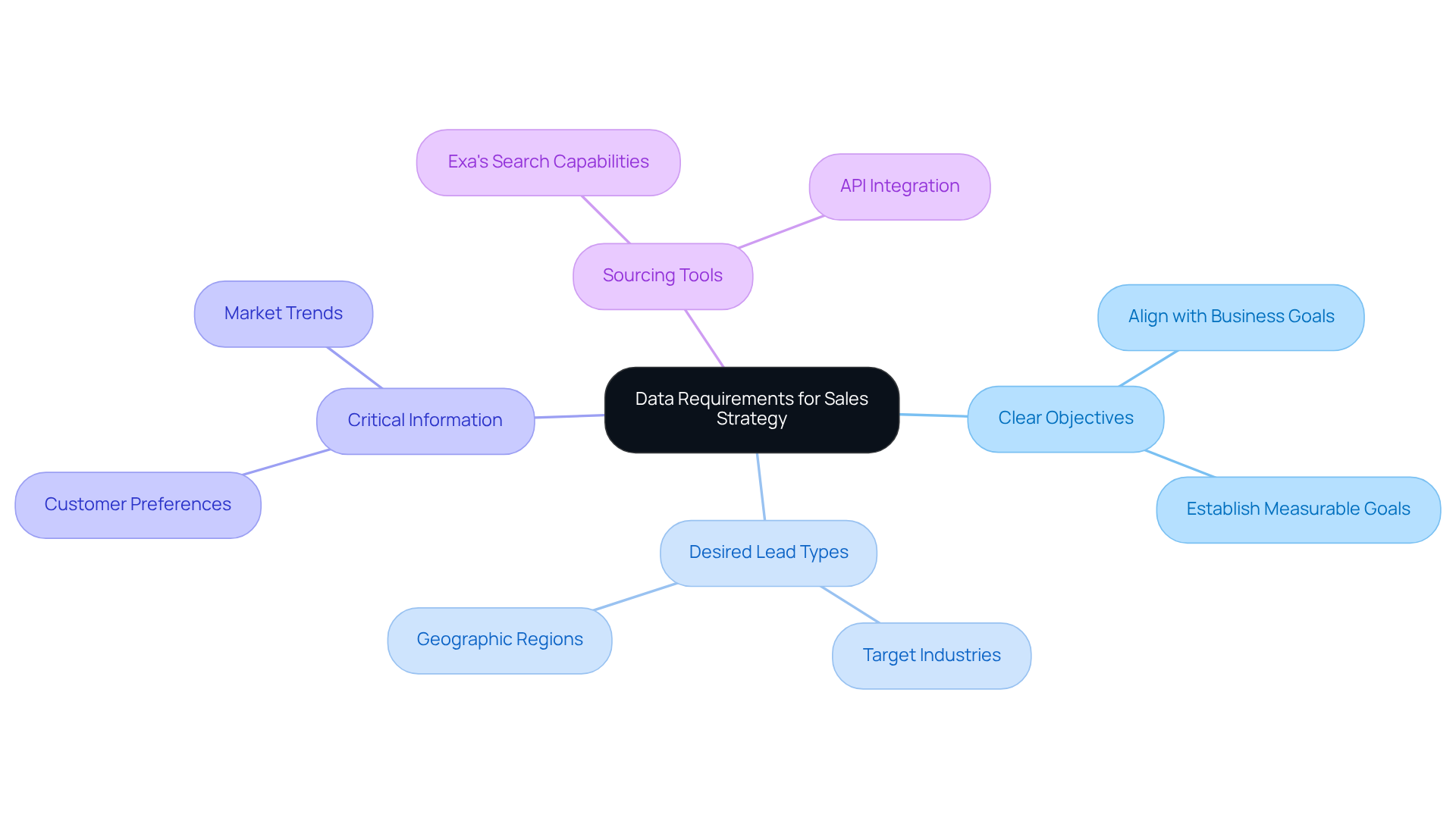
Explore Multiple Data Sources: Diversify Your Data Acquisition Channels
To enhance the effectiveness of data sourcing, sales groups must actively investigate a diverse array of information acquisition channels. Leveraging social media platforms, industry databases, and networking events is essential for crafting a well-rounded approach. By broadening their information sources, groups can gain a more extensive perspective on potential leads, revealing insights that may not be accessible through a single channel. For instance, combining data from LinkedIn with insights from industry reports can significantly enrich the context for targeting leads, resulting in more informed outreach strategies.
Moreover, utilizing Websets' AI-powered sales intelligence search can greatly streamline this process. This tool empowers teams to identify companies and individuals that meet hyper-specific criteria, augmenting their information with emails, company details, and positions. As Barak Finkelshtein aptly states, "In today’s competitive world, being innovative in lead generation is key to success." In 2025, statistics indicate that campaigns employing multiple channels can achieve response rates that are 40% higher and cost-per-lead that is 31% lower compared to those relying solely on email. This underscores the necessity of adopting a multi-faceted strategy for data sourcing, as it not only elevates lead quality but also fosters stronger relationships with prospects.
To further refine targeting efforts, consider into lead generation analytics. For practical application, teams can explore case studies where Websets has effectively assisted organizations across various sectors in enhancing their lead generation strategies, showcasing the tangible benefits of a diversified approach to data sourcing.
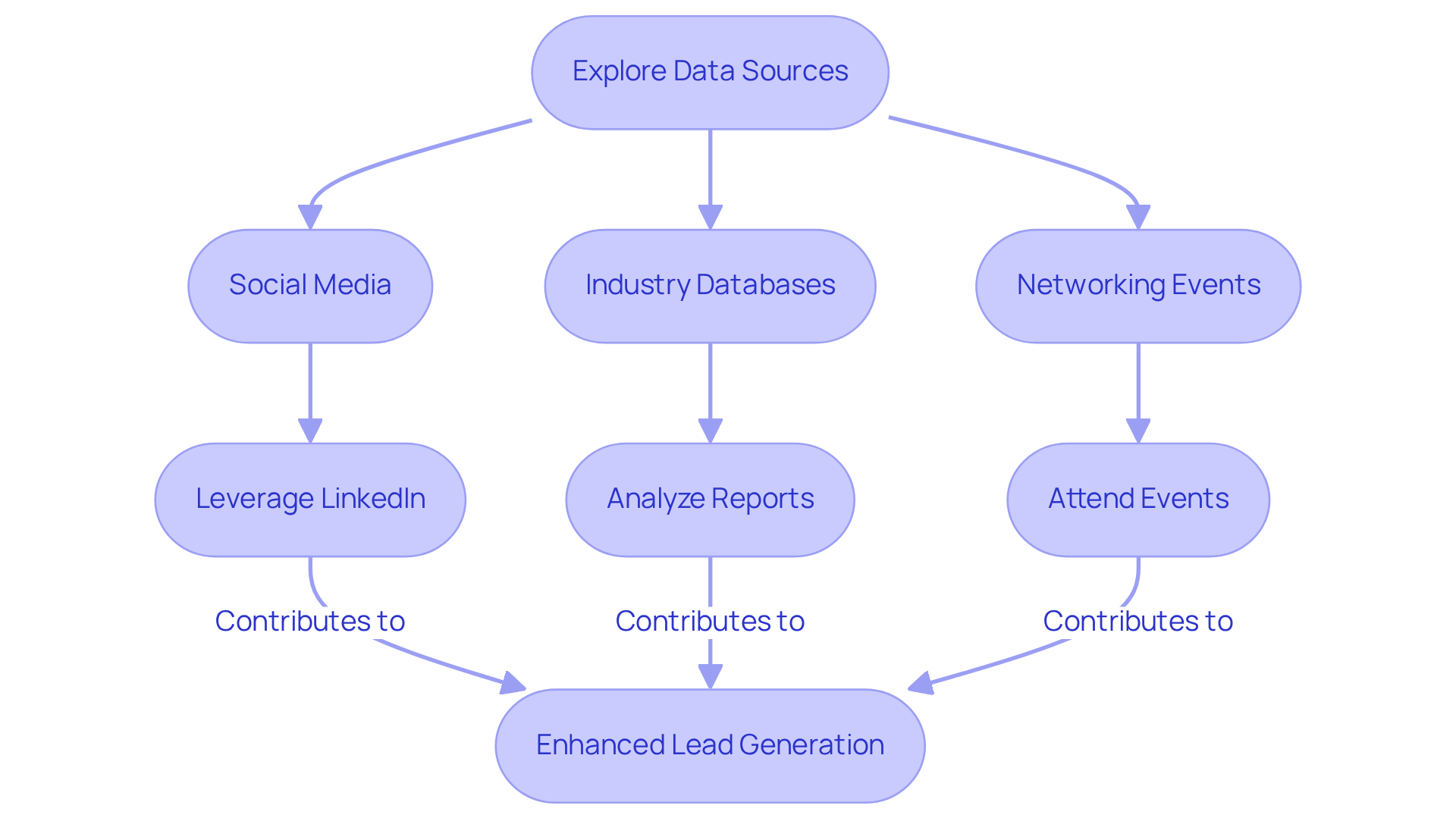
Establish Data Quality Criteria: Ensure Accuracy and Reliability
Establishing strong quality standards is crucial for ensuring that sales information is dependable and actionable. Defining specific standards such as accuracy, completeness, and timeliness is essential. Sales groups must perform routine evaluations to confirm that their information aligns with these criteria. For instance, consistently checking and updating contact information can significantly boost the effectiveness of outreach efforts. By prioritizing information quality, teams not only mitigate the risk of costly mistakes but also enhance their overall revenue performance. As Madison Hendrix aptly states, "If you want to get the most out of your lead generation strategy, you must collect and examine information to see where your opportunities lie."
Moreover, the significance of predictive analytics cannot be overlooked; it forecasts revenue trends and identifies high-value prospects, thereby refining sales strategies. Organizations that invest in information integrity are better positioned to enhance their revenue strategies and achieve sustainable growth in 2025. The financial repercussions of can be substantial; maintaining accurate records is far less costly than rectifying the fallout from faulty information.
By implementing practical suggestions such as regular assessments and leveraging verification tools, sales groups can ensure they are working with the most precise and relevant information available.
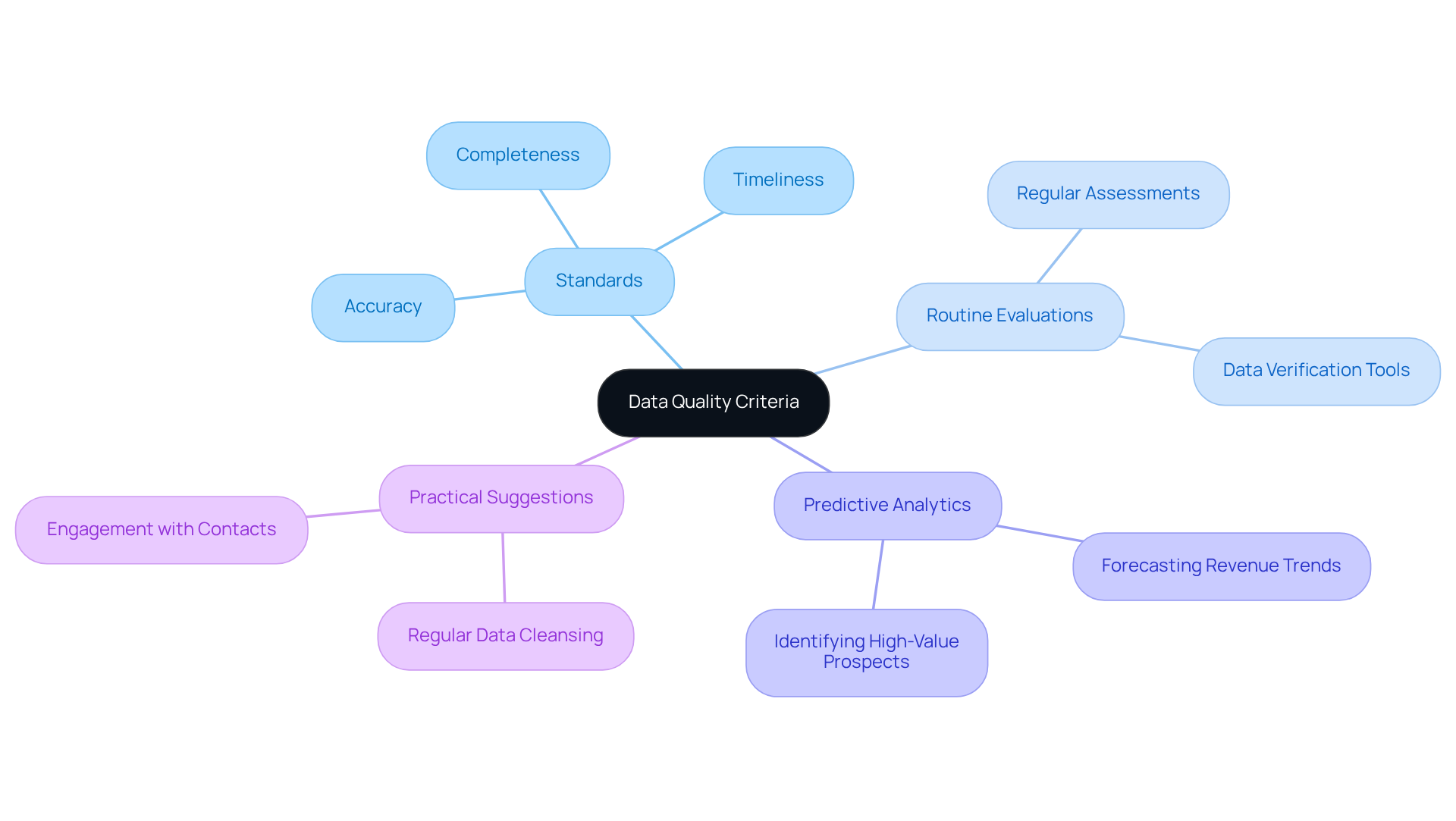
Understand Legal and Ethical Considerations: Navigate Data Sourcing Responsibly
Sales teams operate within a complex framework of legal and ethical considerations when acquiring information, especially in light of . Compliance with these regulations transcends mere legal obligation; it serves as a strategic advantage that cultivates customer trust. Organizations must implement robust policies that clearly outline information usage and ensure transparency in collection practices. A comprehensive compliance framework is essential to adapt to evolving privacy regulations.
Educating all team members on these guidelines is vital to ensure adherence and uphold ethical standards, particularly given that 57% of B2B marketing professionals lack awareness of GDPR. By prioritizing ethical information acquisition, companies can bolster their reputation, mitigate legal risks, and foster enduring client relationships, ultimately driving improved revenue outcomes.
As a Data Protection Officer stated, "By adhering to GDPR, you and your sales group will swiftly achieve your sales KPIs, produce higher quality leads, connect with more engaged prospects, and ultimately, secure better close rates.
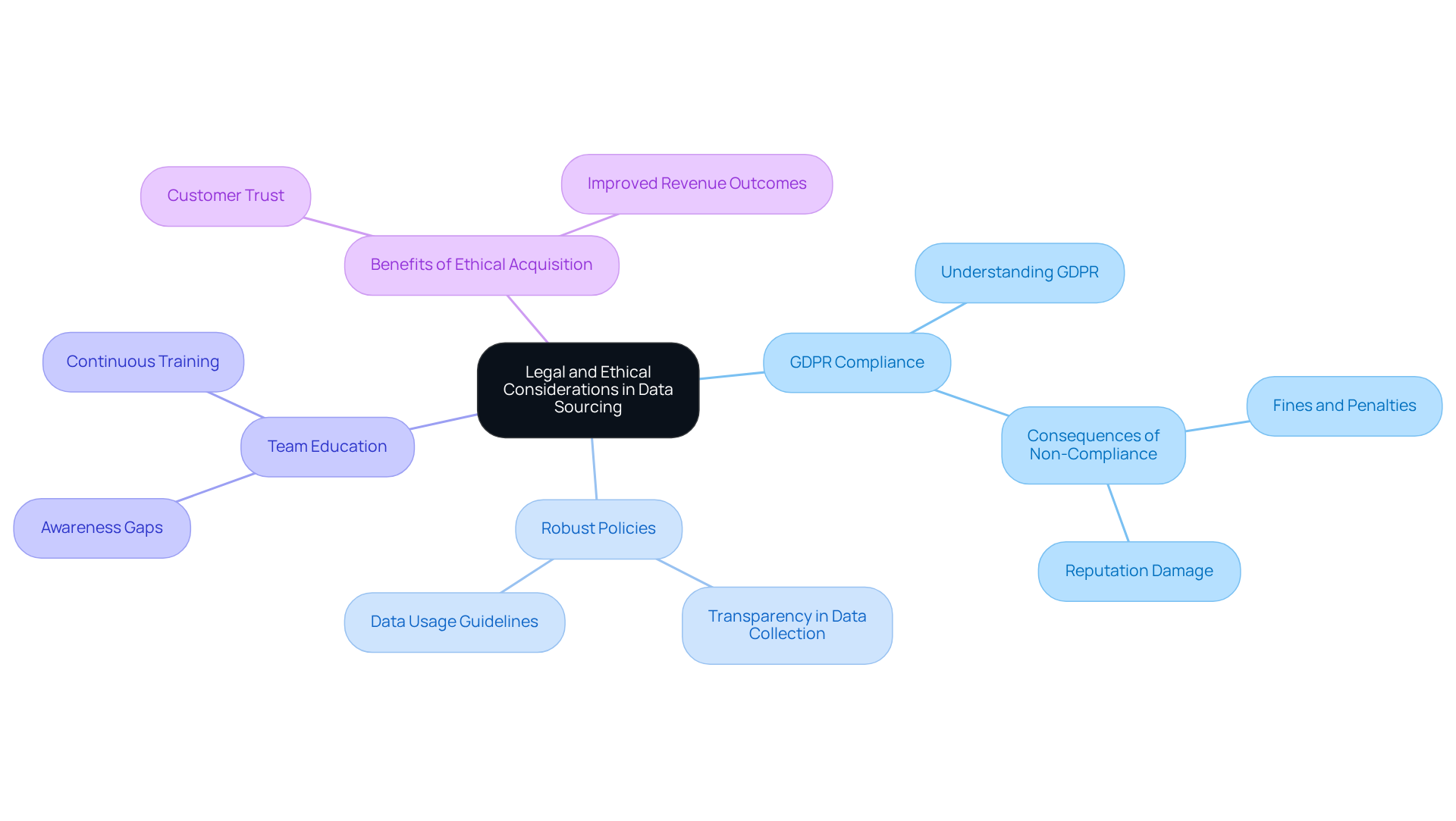
Document Your Data Sourcing Process: Maintain Transparency and Traceability
Comprehensive documentation of the data sourcing procedure is crucial for ensuring transparency and traceability. Sales groups must meticulously record their information sources, the criteria employed for selection, and any transformations made during the data sourcing process. By leveraging Exa's advanced search capabilities and API integration, teams can streamline this documentation, enabling efficient management and access to their data sourcing. This practice not only aids in compliance but also allows teams to revisit and over time.
Consider this: if a specific source consistently yields high-quality leads, prioritizing it in future sourcing efforts can significantly enhance lead generation outcomes. Furthermore, as noted, "Documentation aids individuals in utilizing information efficiently," fostering a culture of openness that builds trust in information. By establishing clear expectations for information quality with stakeholders and recognizing that documentation is an ongoing process, sales groups can make more informed decisions and improve operational efficiency.
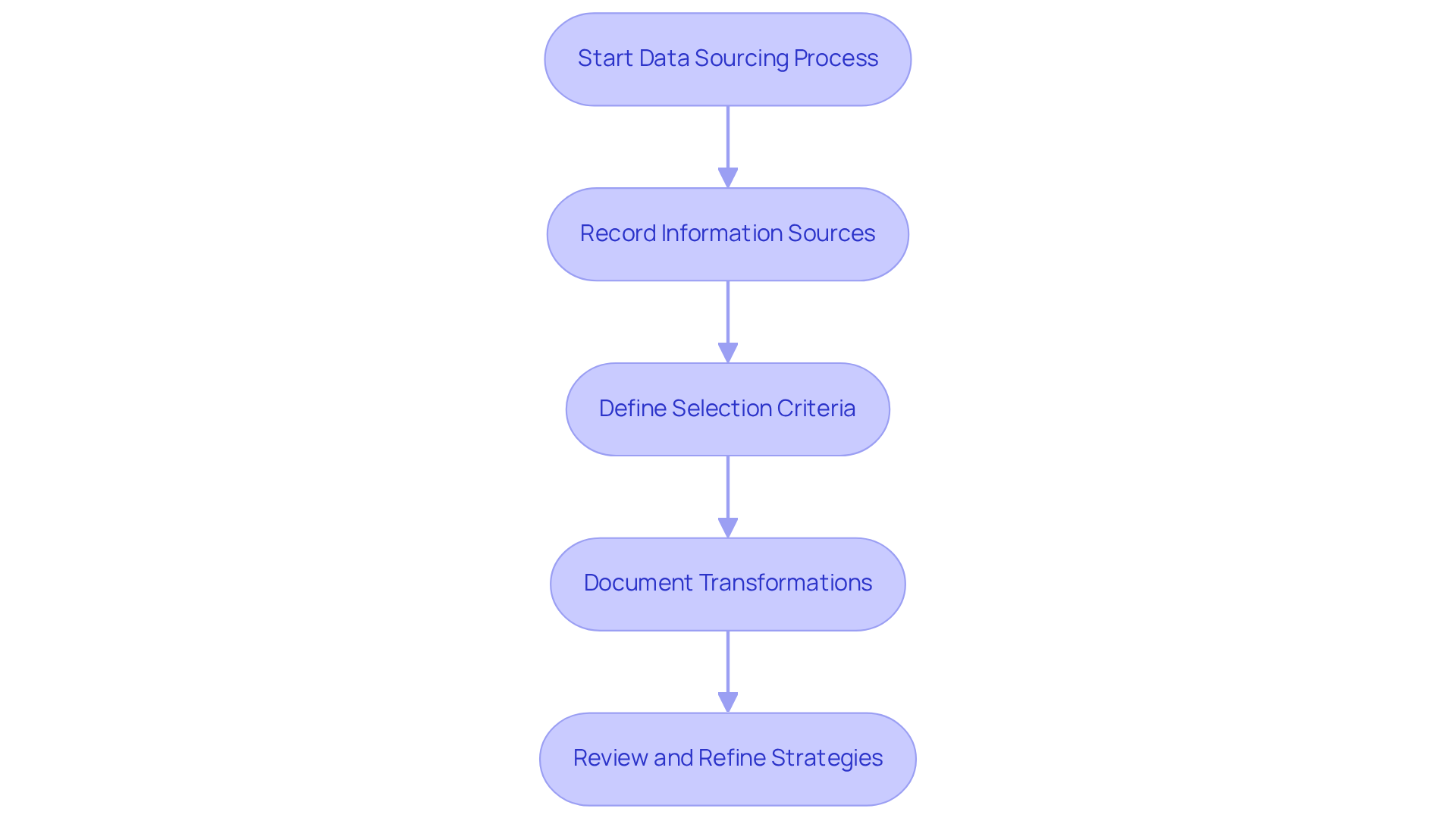
Evaluate Data Quality: Assess and Validate Your Sourced Data
Continuous assessment of information quality is not just beneficial; it is essential for sales groups. Regular evaluations must be conducted to ensure the precision and significance of data sourcing. This process can include:
- Cross-referencing with trusted sources
- Conducting surveys to confirm details
By proactively addressing quality concerns, sales teams can enhance decision-making processes and significantly boost revenue outcomes. For instance, utilizing Websets' Exa Researcher streamlines this effort, employing link similarity and keyword search to refine company research. This ensures that the information used for outreach is both accurate and relevant.
In 2025, statistics reveal that fewer than 45% of sales groups demonstrated high confidence in their forecasting precision, underscoring the urgent need for thorough information validation practices. By integrating quality assessments into their operations, sales groups can improve their data sourcing to mitigate the risks associated with inadequate information, ultimately leading to improved outcomes and fostering stronger client connections.
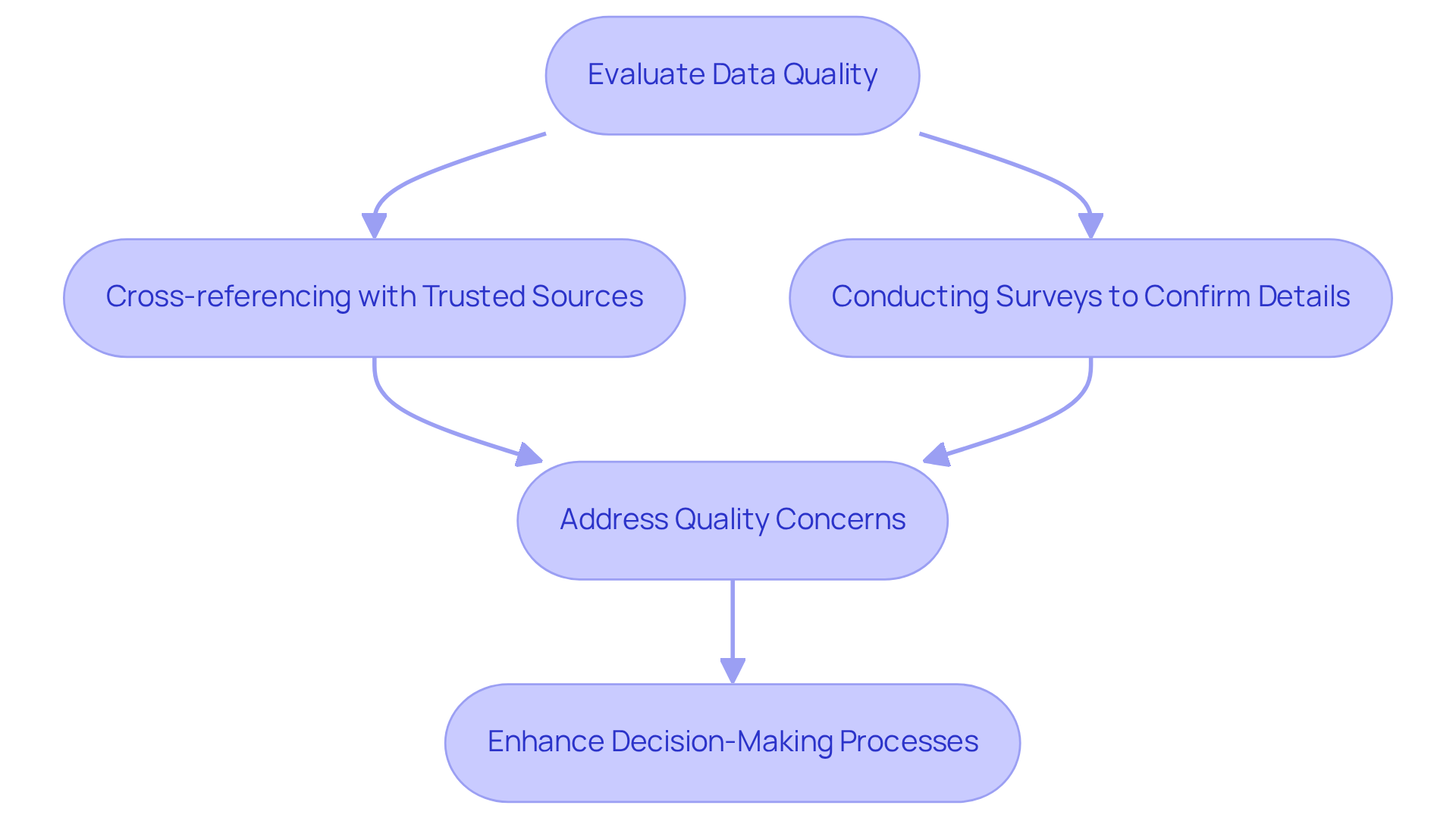
Monitor and Rectify: Continuously Improve Your Data Sourcing Strategies
To enhance the effectiveness of data sourcing strategies, sales groups must establish a robust system for ongoing monitoring and correction. Regularly reviewing procurement outcomes and analyzing performance metrics is essential for data sourcing to identify areas for enhancement. For instance, if a specific supply channel yields unsatisfactory results, groups should investigate the root causes and consider reallocating resources to more effective channels.
Utilizing Websets' can significantly improve lead generation by providing accurate information enrichment, enabling groups to discover companies and individuals that meet hyper-specific criteria. By fostering an environment of continuous improvement and leveraging Websets' features, organizations can elevate their data sourcing efforts, ultimately boosting sales performance.
This proactive approach not only addresses immediate challenges but also leverages data sourcing to position teams to adapt to evolving market conditions and optimize their strategies for sustained success. A compelling case study in the healthcare sector illustrated how Websets enhanced patient outcomes and operational efficiency through its advanced information gathering techniques. This further underscores the critical importance of effective information acquisition.
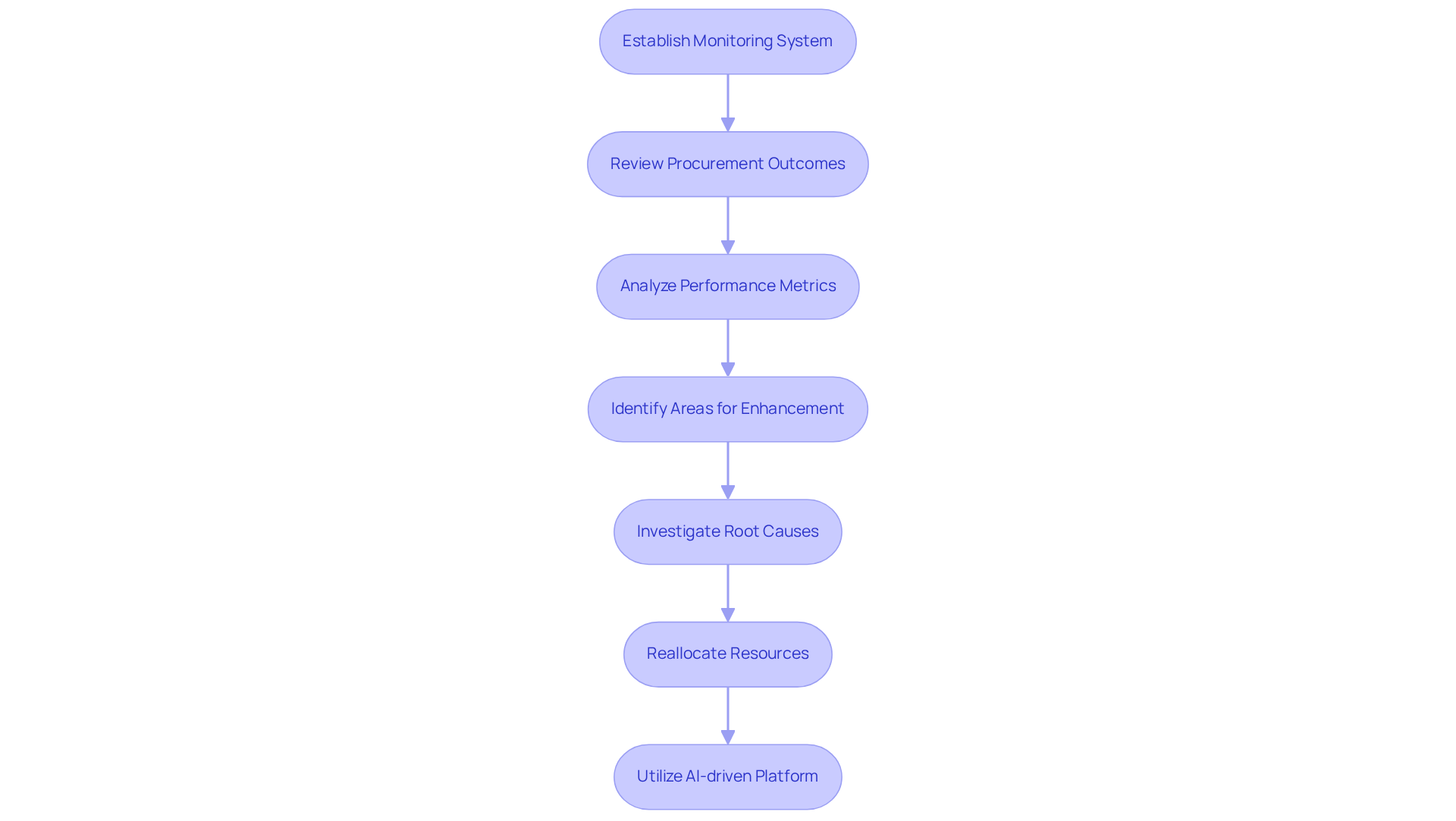
Leverage Technology Tools: Enhance Efficiency in Data Sourcing
Harnessing technological instruments is essential for enhancing effectiveness in information gathering. Sales teams must explore various software solutions that can optimize the processes of information gathering, validation, and analysis. Tools such as CRM systems, information enrichment platforms, and can significantly streamline data sourcing, allowing teams to focus on strategic initiatives. For example, Websets' AI-powered API enables swift and precise collection and assessment of lead information, saving time and improving the accuracy of insights, which ultimately leads to better sales outcomes.
Moreover, compelling case studies demonstrate that organizations utilizing Websets' API have seen a remarkable:
- 30% increase in lead conversion rates
- 25% reduction in processing time
These statistics underscore the tangible benefits of integrating such technologies into practical applications. As businesses strive for efficiency and effectiveness, embracing these innovative tools is not just advantageous—it's imperative.
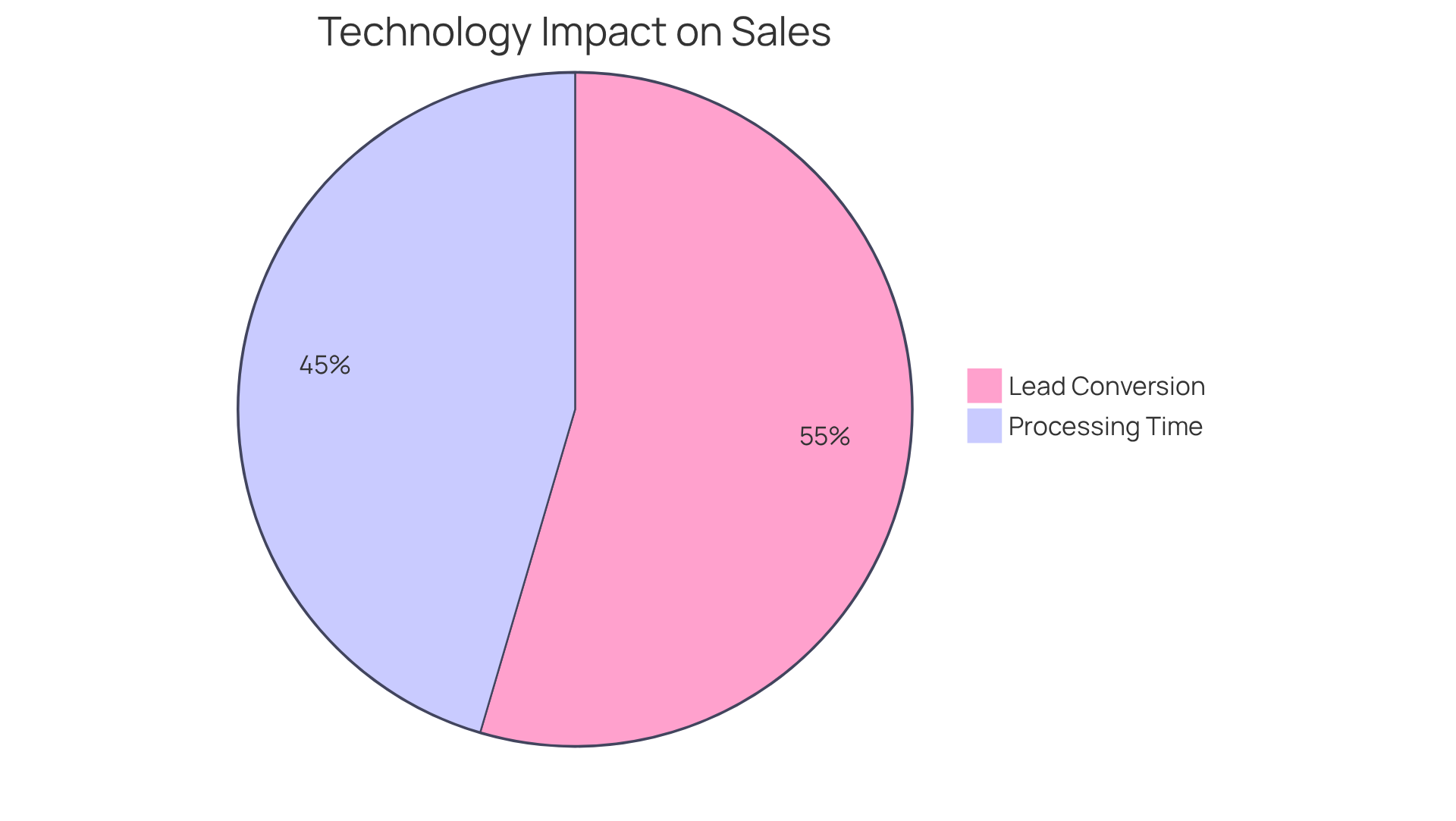
Collaborate with Cross-Functional Teams: Enrich Your Data Sourcing Approach
Collaborating with interdisciplinary groups significantly enhances data gathering by integrating diverse perspectives and expertise. Sales teams must engage with marketing, product development, and customer service units to collect insights that can inform their procurement strategies. For example, marketing teams can offer valuable information regarding customer preferences, while product teams contribute insights on prevailing market trends.
By leveraging AI-powered tools such as Websets' Hallucination Detector and Writing Assistant, organizations can refine their information gathering processes. These tools facilitate the analysis of customer data and generate actionable insights, ultimately leading to more effective sales strategies.
Notably, organizations that prioritize cross-functional collaboration and employ advanced tools see substantial improvements in their data sourcing effectiveness. This enables them to and meet evolving customer demands.
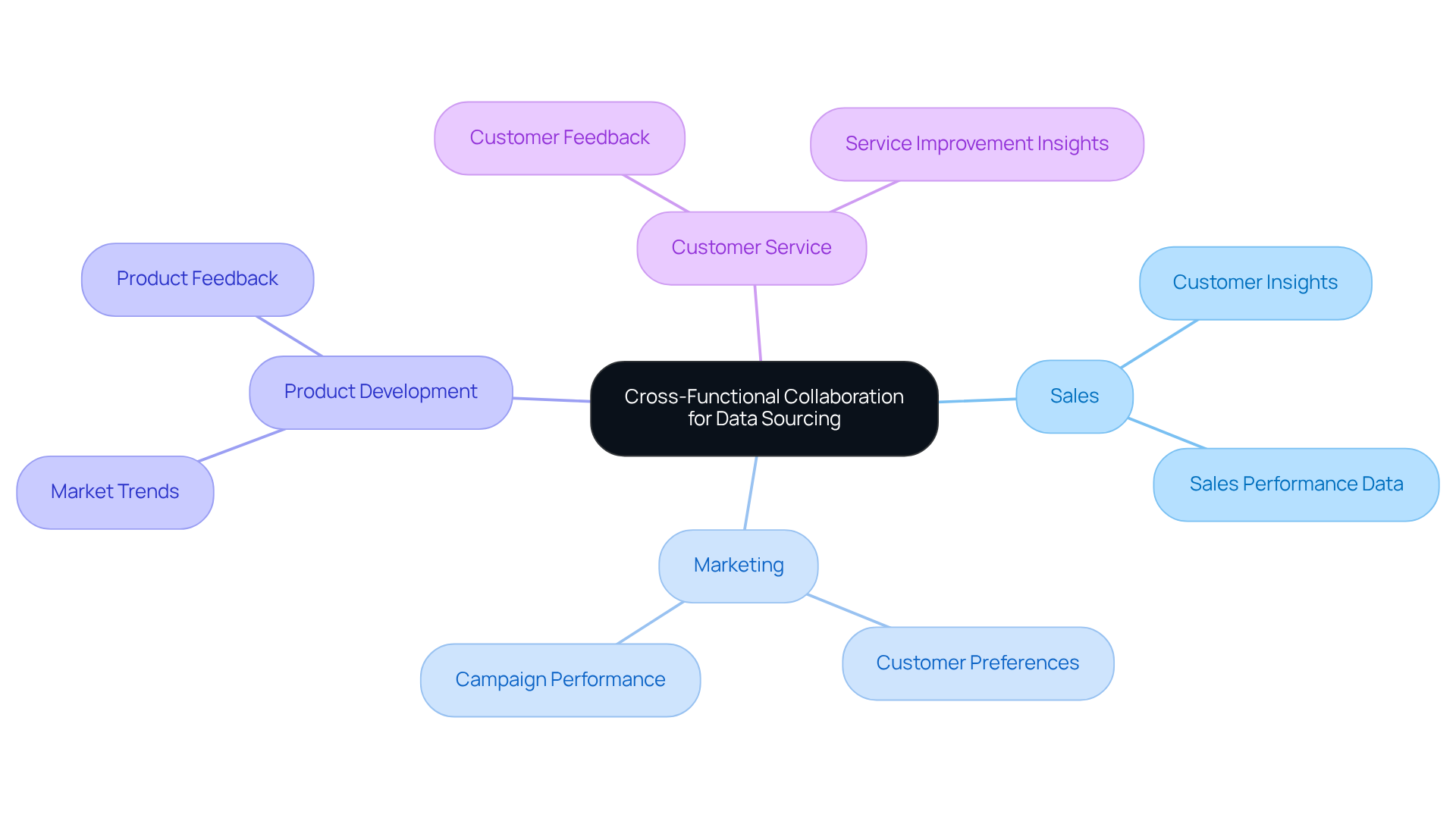
Conclusion
Implementing effective data sourcing strategies is essential for enhancing sales performance and driving business growth. By leveraging advanced technologies and establishing clear objectives, organizations can streamline their lead generation processes, ensuring they target the right prospects with the most relevant information.
Key strategies outlined throughout this article include:
- The importance of diversifying data sources
- Maintaining high-quality standards
- Adhering to legal and ethical considerations
The role of collaboration across teams and the use of technology tools, such as AI-powered platforms, are emphasized as critical components for optimizing data sourcing efforts. These practices not only improve the accuracy and reliability of data but also foster a culture of continuous improvement within sales teams.
In conclusion, the significance of effective data sourcing in sales cannot be overstated. As businesses navigate an increasingly competitive landscape, adopting these strategies will empower them to enhance their outreach efforts, improve conversion rates, and ultimately achieve sustainable success. Embracing innovation and prioritizing data quality will ensure organizations are well-equipped to meet evolving market demands and thrive in the years to come.
Frequently Asked Questions
What is Websets and how does it assist in lead generation?
Websets is an AI-powered tool that revolutionizes lead generation and information gathering by enabling businesses to navigate vast datasets and identify the right professionals or organizations. It offers enhanced search results, LinkedIn profiles, detailed company insights, and historical job experiences, making it a powerful resource for marketing teams.
What impact does AI lead scoring have on businesses?
In 2025, businesses that adopted AI lead scoring reported a 28% increase in qualified leads directed to their sales teams. Additionally, 98% of revenue teams believe that AI improves lead prioritization, allowing them to concentrate on high-value opportunities.
Why is it important to define data requirements for sourcing?
Establishing clear objectives for information gathering is crucial for a successful sales strategy. By defining specific goals, such as the types of leads desired or critical information to collect, sales teams can streamline the data sourcing process and ensure the information obtained is relevant and actionable.
How can sales teams diversify their data acquisition channels?
Sales teams can enhance their data sourcing effectiveness by exploring a variety of information acquisition channels, including social media platforms, industry databases, and networking events. This approach helps to gain a broader perspective on potential leads and enriches outreach strategies.
What benefits do multi-channel campaigns offer in lead generation?
Campaigns that utilize multiple channels can achieve response rates that are 40% higher and cost-per-lead that is 31% lower compared to those relying solely on email. This highlights the importance of a multi-faceted strategy for data sourcing to improve lead quality and foster stronger relationships with prospects.
How can customer feedback be integrated into lead generation analytics?
Integrating customer feedback into lead generation analytics can help refine targeting efforts. Teams can also explore case studies showcasing how Websets has effectively assisted organizations in enhancing their lead generation strategies, demonstrating the benefits of a diversified approach to data sourcing.




